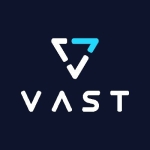What is our primary use case?
We're trying to converge a lot of storage equipment, around ten units, from two different locations into redundant PowerMax sites. We need to converge all the VNX and HVAs from Hitachi to something like enterprise storage like PowerMax.
How has it helped my organization?
During the Request for Proposal (RFP) process with Dell, we know that the throughput of PowerMax will be convenient for us and it will handle our data center workloads.
We already have NVMe in the company, and we're very satisfied with NVMe technology within PowerMax that impacted our IO performance.
What is most valuable?
First, it's an enterprise storage solution. This is very important for us.
Another important feature is replication.
However, many features are common across vendors such as Hitachi. Whether it's replication and encryption, we find the same features with IBM or Hitachi. There are minor differences, but not significant.
Replication is important because we replicate some data. Encryption is also crucial. Additionally, data reduction is vital. The more the storage can reduce data volume, the lower the cost.
Good documentation is important. We currently have a lot of documentation from Dell.
What needs improvement?
Configuration could be easier to manage, and implementation should be easier to install and configure.
Dell can improve the Service Level Agreement (SLA) compliance. Sometimes, when we need to replace a component, the SLA says four hours, but for some reason, the technician doesn't arrive until the next business day or even six to eight hours later before the case is placed. So, focusing on respecting the SLA is where Dell could improve.
For how long have I used the solution?
What do I think about the scalability of the solution?
PowerMax is still in the evaluation stage. However, I do have experience with other Dell products such as PowerStore.
We can scale it out easily, but it is a bit tricky to scale up. When we scale up with Dell PowerStore, it has a "cluster" approach, but scaling closer isn't clustering. It's more like unified management of two or three "folks." Dell calls it a cluster because there's no I/O shredding, zoning, or LAN data shredding, which would be true clustering.
How are customer service and support?
Dell support is crucial. It's important to us that the vendor responds and respects the SLA. We don't anticipate any problems with Dell, so we consider them a good vendor and a good business partner.
Dell can improve the Service Level Agreement (SLA) compliance. Sometimes, when we need to replace a component, the SLA says four hours, but for some reason, the technician doesn't arrive until the next business day or even six to eight hours later before the case is placed. So, focusing on respecting the SLA is where Dell could improve.
How would you rate customer service and support?
Which solution did I use previously and why did I switch?
We've been using Dell EMC midrange storage for a few years now.
We're moving from older Dell platforms, previously known as EMC. We're transitioning from VNX, including VNX 7600, 5600, and 5400, to newer storage platforms, primarily Dell EMC PowerMax.
I have also used Dell EMC Data Protection Advisor (DPA).
What's my experience with pricing, setup cost, and licensing?
The pricing is comparable to other vendors. There aren't significant price differences. Since the price is high, a few hundred thousand dollar difference between vendors isn't a major deciding factor. So, they're comparable, but it's more about the support, implementation, and configuration of their product.
Which other solutions did I evaluate?
We're in the Request for Proposal (RFP) process. The RFP is not closed. Dell is one of the vendors we're considering, and we're working with them to figure out migration and other technical details. They're not the only vendor; we're also considering IBM, Hitachi and others.
What other advice do I have?
considering it's an enterprise storage solution, I would rate it a nine out of ten.
Disclosure: My company does not have a business relationship with this vendor other than being a customer.















